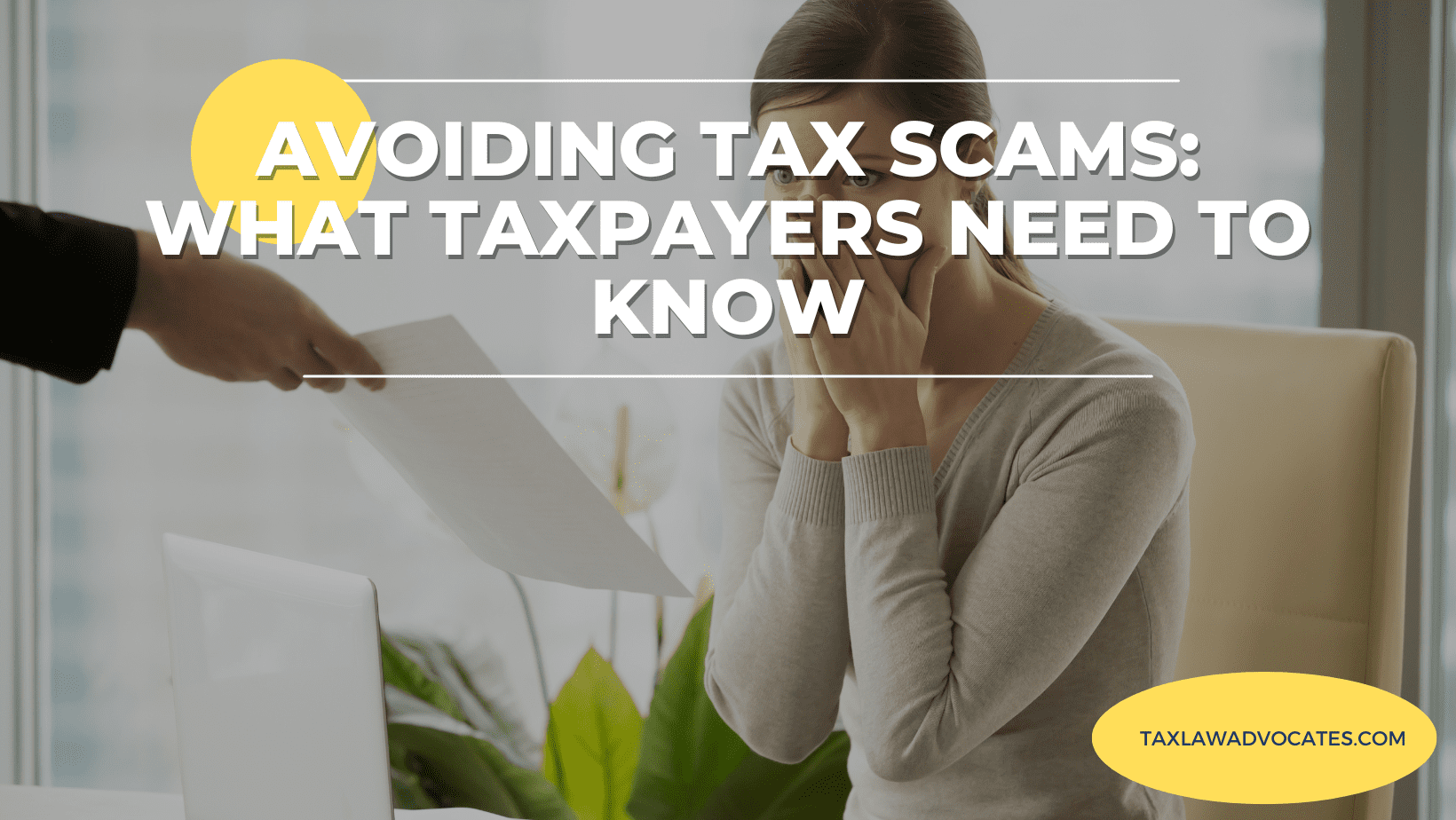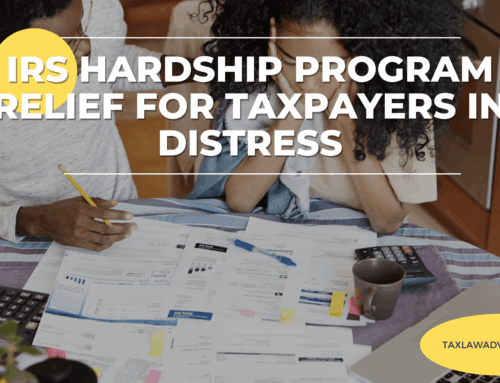Tax season isn’t just a time for filing returns and receiving refunds—it’s also prime time for scammers looking to take advantage of unsuspecting taxpayers. With fraudulent schemes on the rise, it’s crucial to recognize common tax scams and know how to protect yourself. Whether it’s phishing emails, fraudulent phone calls, or identity theft, tax fraud can cause severe financial and legal consequences.
At Tax Law Advocates, we specialize in assisting taxpayers who have been victims of scams, ensuring their financial safety and helping them resolve any fraudulent tax issues. If you believe you’ve been targeted or need guidance, call us at 855-612-7777 or visit taxlawadvocates.com for professional assistance.
Common Tax Scams and How to Avoid Them
Scammers use various tactics to steal money and personal information, often impersonating the IRS or tax professionals. Here are some of the most common tax scams to watch out for:
1. Phone Scams
One of the most widespread scams involves fraudsters calling taxpayers and pretending to be IRS agents. These scammers often:
- Demand immediate tax payments via wire transfer, prepaid debit cards, or gift cards.
- Threaten to have the taxpayer arrested, deported, or their licenses revoked.
- Use aggressive language and scare tactics to pressure victims into compliance.
How to Spot a Phone Scam:
✔ The IRS never demands payment over the phone.
✔ The IRS never threatens to bring law enforcement to your home.
✔ The IRS always notifies taxpayers through written mail before taking any action.
What to Do:
- Hang up immediately.
- Report the scam to the IRS Impersonation Scam Reporting at 800-366-4484.
- Never provide personal or financial information to an unsolicited caller.
2. Fake IRS Emails (Phishing Scams)
Phishing scams involve fraudulent emails that appear to come from the IRS, asking for sensitive information such as Social Security numbers, bank account details, or tax filing credentials.
How to Identify a Phishing Email:
✔ The IRS never initiates contact via email to request personal or financial details.
✔ Scammers may use official-looking logos and email addresses, but on closer inspection, these often contain slight misspellings or unusual domains.
✔ Emails often create urgency, claiming you must act immediately to receive a refund or avoid penalties.
What to Do:
- Do not click on any links or download attachments.
- Forward the email to phishing@irs.gov.
- Delete the email from your inbox.
3. Identity Theft and Fake Tax Returns
Scammers often steal Social Security numbers and file fraudulent tax returns in a taxpayer’s name to claim refunds. Victims usually don’t realize they’ve been targeted until they attempt to file their return, only to find that someone has already filed under their Social Security number.
Warning Signs of Tax Identity Theft:
✔ Receiving an IRS notice about a tax return you didn’t file.
✔ Getting tax documents for a job you never worked at.
✔ Your e-file return is rejected because a duplicate has already been filed.
What to Do:
- File your tax return as early as possible to reduce the risk of fraud.
- If your tax return is rejected due to a duplicate filing, complete Form 14039, Identity Theft Affidavit, and submit it to the IRS.
- Monitor your credit report and consider placing a fraud alert on your Social Security number.
- Contact Tax Law Advocates for professional assistance in resolving fraudulent tax filings.
4. Fake Tax Payment Demands
Scammers may send fraudulent letters claiming to be from the IRS, demanding payment for non-existent taxes like the “Federal Student Tax” or “Federal Business Tax.” These scams often instruct taxpayers to pay via unconventional methods such as cryptocurrency, wire transfers, or gift cards.
How to Spot a Fake Tax Payment Demand:
✔ The IRS will never request payment via gift cards or cryptocurrency.
✔ IRS notices are always sent via mail first, not email or text.
✔ The IRS provides official online resources for verifying tax debts at IRS.gov.
What to Do:
- Verify any tax bills with the IRS by calling 800-829-1040 or checking your tax account online.
- Do not send any payments without confirming with the IRS.
- Report any fraudulent notices to Tax Law Advocates for professional verification and assistance.
5. Fraudulent Charity Solicitations
Scammers frequently take advantage of tax deductions by creating fake charities and soliciting donations. They often claim that the donation is tax-deductible when, in reality, the charity does not exist or is not IRS-approved.
How to Verify a Charity:
✔ Look up the charity on the IRS Tax Exempt Organization Search at IRS.gov.
✔ Be cautious of charities that demand immediate cash payments.
✔ Request written confirmation of your donation for tax deduction purposes.
What to Do:
- Avoid donating to organizations that cannot provide proof of tax-exempt status.
- If you suspect a charity scam, report it to the Federal Trade Commission (FTC) and the IRS Fraud Hotline.
How Tax Law Advocates Can Help Victims of Tax Fraud
If you’ve been a victim of a tax scam or suspect fraudulent activity, Tax Law Advocates can help you:
✔ Dispute fraudulent tax returns and reclaim your legitimate refund.
✔ Respond to IRS notices and verify tax liabilities.
✔ Negotiate with the IRS to stop wrongful collection actions resulting from scams.
✔ Prevent future fraud by advising on identity theft protection strategies.
Take Action Now to Protect Yourself
The best way to prevent tax scams is to stay informed and proactive. If you’ve encountered a suspicious tax situation or need assistance in resolving fraudulent tax issues, Tax Law Advocates is here to help.
📞 Call Tax Law Advocates today at 855-612-7777
🌐 Visit taxlawadvocates.com for professional tax fraud resolution services.
Don’t let scammers take advantage of you—take control of your financial security today!






